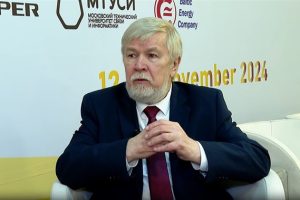
It is unthinkable to curb rampaging corruption menace in Ethiopia so long as the government does not demonstrate strong commitment towards the ongoing fight against corruption apart from enforcing holistic approach, legal experts say.
Ethiopia has lost 17.36 billion dollar due to corruption within ten solid years according to study document from Federal Ethics and Anti-Corruption Commission. Corruption in the country ranges from petty to grand, and acts as an impediment to its development and further exacerbating poverty. Corruption, smuggling, tax fraud, and trafficking in narcotics, persons, arms and animal products are the key proceeds-generating crimes.
Thus, Ethiopia is the 114 least corrupt nations out of 175 countries, according to the 2018 Corruption Perceptions Index report by Transparency International. Corruption Rank in Ethiopia averaged 109.89 from 2000 until 2018, reaching an all-time high of 138 in 2007 and a record low of 59 in 2002, the report indicates.
Lack of accountability and transparency, low levels of democratic culture and tradition, insufficient participation of citizen, lack of clear regulations and authorization, low level of institutional control, disproportionate penalty, and centralization of authority and resources are some of the factors that contribute to corruption thriving in the country, the report exposes.
Assistant Professor of law Tesfaye Abate a Lecturer at Civil Service University tells The Ethiopian Herald that corruption is a social menace which results in project delay, termination tasks as well as low quality of infrastructural developments. In order to strengthen the fight against corruption, the nation has to do various deeds, he says.
The first point that needs to be considered as to him is, changing the mindset of the public. Noting that the country has done many tasks to contain corruption over the past 25 years, Dr. Tesfaye says the efforts has brought abdicable result despite the fact that the most desired change is yet attained.
Thus, the system of preventing corruption need to be directed to producing a generation that detests corruption, he recommends. Besides, the effort exerted by Anti-Corruption Commission, working on the mindset of the generation is critically imperative. For this to happen, making all rounded effort is necessary, Dr. Tesfaye adds.
As it is a core to reverse corruption, the issue of ethics should be treated seriously. How can we believe a person who says I am free from corruption deeds, unless he/she shows in practice? That is why, preventing corruption begins from an individual, he says.
He also advises the importance of making sure that the curriculum has been developed in a way to produce ethical citizens who hate corruption. Even at family level, the relations between husband and wife have to be free from embezzlement, lie and fraud.
The expert says unless citizens are making coordinated effort, no government stamps out corruption by building an institution alone. Sometimes, the practitioners in their respective institutes may abuse the rules and regulations and indulge themselves in such evil practice. That is why most of the time the people criticized the Ethics and Anti-Corruption Commission as weak entity in the fight against corruption.
Therefore, besides upgrading the awareness of the society, the government should also ask itself whether institutions are stronger enough or not, Dr. Tesfaye advises. “When there is sender and receiver, there is always corruption. Thus, both of them should refrain themselves from this social evil act. Otherwise, in the presence of weak institution, expecting changes makes someone very wishful.”
Above all, high level government officials have to be exemplary for the rest of the people in fight against corruption. What is more, community leaders found at all level should also be a model for the posterity, he adds.
“We have to make sure that every citizen gets whatever he wishes without violating law of the land. That is why; legal institutions need to be strong enough. Nevertheless, it is the court system that has been regularly criticized by the public for delaying justice.”
But here, Dr. Tesfaye says the most critical point is the justice institutions cannot be able to reform themselves by their own endeavor unless the court freedom has properly ensured and juries pass judgment without the interference of executive body. If this is a reality, better tasks are expected from justice institutions in providing justice.
On the other hand, if the public is able to ensure its right through respecting law and order appearing in the court, how come he/she engaged in corruption, he asks. He underlines preventing corruption shall not left to institutions alone; rather it is the responsibility of every citizen to work in collaboration with them through identifying the root cause of the problem.
Above all, fighting corruptions highly needs the commitment of the government and political will, Dr. Tesfaye says adding that “Our leaders have to clean themselves first from corruption. If this is so, they will have not face difficulties to take measures on corrupted citizens.”
Taddesse Melak, Assistant Professor of law at Hawassa University, says that the government institutions should be transparent and inform the public about their performances.
Dr. Taddesse emphasises that the justice sectors are needed to be free to perform their task. Citing the experience of some developed countries, he suggests the institutions have to have the power to charge executives bodies if they have got evidence on corruption deeds and /or abuse of power.
“So, if such institutions are strong enough, perform their tasks without fearing anyone else, discharging their responsibilities properly without raising question of liberty. In this way, it is possible to reduce corruption.”
He also gives pieces of advice to the media saying they should play a role in exposing corrupts through conducting investigative journalism. Thus, the existences of strong media institutions will also greatly contribute to fight against corruption.
According to Dr. Taddesse, the civil society and others have to build their capacity in order to supervise and monitor government expenditures. When the civil society and democratic culture are getting stronger and stronger, the accountability of the government can be magnified. And finally, the public will have an authority over the government, he says.
“Besides strengthening bilateral cooperation with countries and financial institutions abroad it is also helpful to return the money saved in foreign banks. In so doing, the country can minimize corruption.”
While presenting its 11 month report to the parliament, the Attorney General Berhanu Tsegaye said his office is working to recover the nation wealth worth of 130 billion Birr. Berhanu said the government has reached agreements with various countries to recover the stolen public money.
Ethical Education and Communication Affairs Director under Ethics and Anti-Corruption Commission, Wondatire Deneke said that apart from performing various tasks to raise awareness of the public, the Commission has been conducting research on the performance of government projects which are assumed to be vulnerable for corruption and providing recommendation to the government institutions.
“If there is a tendency to exercise corruption by officials, the commission has the mandate to report cases to concerned bodies such as Police, and Attorney General for further investigation.
The Ethiopian Herald, January 2/2020
BY GIRMACHEW GASHAW





